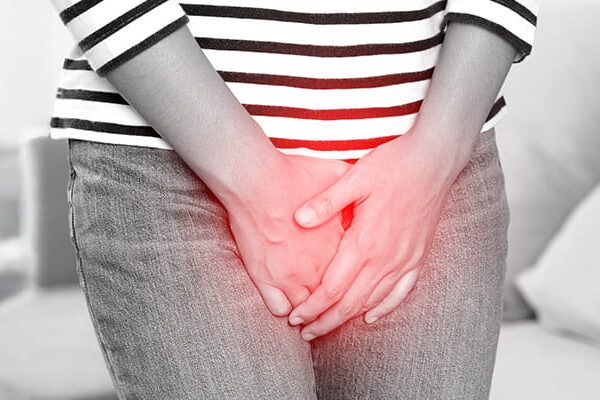Last Updated on September 25, 2025
Why National Women’s Health and Fitness Day Matters
September – 24th is National Women’s Health and Fitness Day; a nationwide initiative focused on educating and encouraging women to prioritize their health. In 2025, the campaign will once again unite healthcare providers, fitness centers, community organizations, and women themselves around one goal: empowering healthier lives.
The day matters because women’s health needs are unique and change across different life stages. Women are more likely than men to juggle multiple responsibilities such as work, caregiving, and household duties, often at the cost of personal wellness. National Women’s Health and Fitness Day 2025 emphasizes the importance of putting health first, even in busy schedules.
Detailed Guide: Wellness Tips for National Women’s Health and Fitness Day 2025
Prioritize Movement Every Day:
The human body is designed to move, yet modern lifestyles often keep women sitting for long hours. The World Health Organization recommends 150–300 minutes of moderate aerobic activity per week along with muscle-strengthening at least twice a week.
For busy women, this doesn’t have to mean hours at the gym. Activities like walking meetings, short home workouts, stair climbing, or dance sessions can add up. On National Women’s Health and Fitness Day 2025, local organizations often host free events, an excellent way to try something new.
Eat with Balance and Intention:
Nutrition plays a central role in women’s health. A diet rich in fruits, vegetables, lean protein, and whole grains supports energy, immunity, and disease prevention. For women, calcium and vitamin D are crucial for bone health, while iron and B vitamins are essential during reproductive years.
National Women’s Health and Fitness Day is a perfect time to reassess eating habits. Small changes like cooking at home more often, meal prepping, or reducing sugary drinks can create long-term benefits.
Stay Up to Date with Preventive Screenings:
Preventive care saves lives. National Women’s Health and Fitness Day 2025 should act as a reminder to schedule or catch up on check-ups and screenings such as:
- Mammograms and pap smears
- Bone density tests for osteoporosis
- Blood pressure and cholesterol checks
- Thyroid and diabetes testing
- Mental health evaluations
- Preventive screenings can help detect issues early and reduce complications later in life.
The Overlooked Pillar: Sleep:
Sleep is often sacrificed when life gets busy, yet it is as essential as exercise and diet. Adults should aim for 7–9 hours of quality sleep. Good sleep hygiene includes setting a consistent bedtime, creating a restful environment, and limiting caffeine or screens late at night.
Poor sleep can increase risks for obesity, diabetes, cardiovascular disease, and depression. National Women’s Health and Fitness Day 2025 is an excellent checkpoint to reset sleep habits.
Manage Stress and Mental Health:
Women experience higher rates of anxiety and depression compared to men, partly due to hormonal fluctuations, societal pressures, and multitasking demands. Mental health is inseparable from physical health.
Practical strategies include:
- Practicing mindfulness or meditation
- Journaling to manage emotions
- Taking breaks from digital screens and social media
- Building strong support networks
Even dedicating 10 minutes daily to stress relief can help. National Women’s Health and Fitness Day remind women that caring for the mind is just as important as caring for the body.
Tailor Health Practices to Each Stage of Life:
Every life stage brings different health priorities:
- Adolescence and early adulthood: Focus on building healthy habits, adequate iron intake, and reproductive health education.
- Childbearing years: Pay attention to prenatal care, postpartum recovery, and balancing caregiving with self-care.
- Perimenopause and menopause: Monitor hormonal changes, bone health, and cardiovascular risks.
- Later years: Prioritize fall prevention, strength training, and cognitive health.
National Women’s Health and Fitness Day 2025 highlight the need for women to adapt their wellness strategies as their bodies change.
Also Read: Vitamins for Menopause Fatigue: Boost Energy and Reclaim Vitality Naturally
Leverage Technology for Support:
Technology can act as a personal coach. Wearables, apps, and telehealth services provide tools for tracking activity, monitoring sleep, and even consulting with doctors virtually. For women managing busy lives, these tools can be game changers for consistency.
Community Matters:
Celebrating National Women’s Health and Fitness Day also means connecting with others. Local fitness centers, hospitals, and wellness organizations often organize walks, screenings, and educational events. Group activities create accountability and motivation.
Community-level change, such as safe parks, walking paths, and affordable health programs, also plays a big role. This day brings attention to how environment and access shape women’s health outcomes.
How to Celebrate National Women’s Health and Fitness Day 2025
Here are practical ways to engage with this awareness day:
- Set one new health goal (e.g., drinking more water, reducing sugar, walking 30 minutes daily).
- Join a community event such as yoga in the park, wellness fairs, or group runs.
- Schedule screenings that may have been postponed.
- Host a workplace challenge promoting step counts or healthy snacks.
- Share awareness online to encourage other women to participate.
Conclusion
National Women’s Health and Fitness Day 2025 is more than just a calendar event, it’s a reminder that wellness is a lifelong commitment. By incorporating fitness, balanced nutrition, preventive care, sleep, stress management, and community engagement, women can create a healthier future for themselves and those they influence.
As National Women’s Health and Fitness Day approaches, let it serve as both a celebration and a call to action. Whether you are beginning a new fitness routine, scheduling important screenings, or focusing on self-care, this is the perfect time to put your health first.




